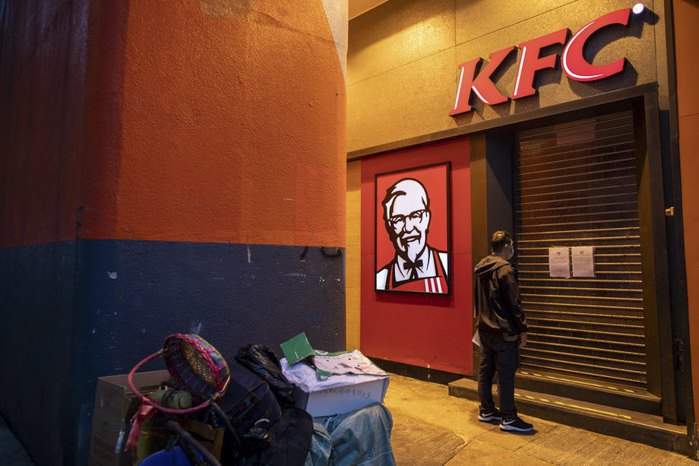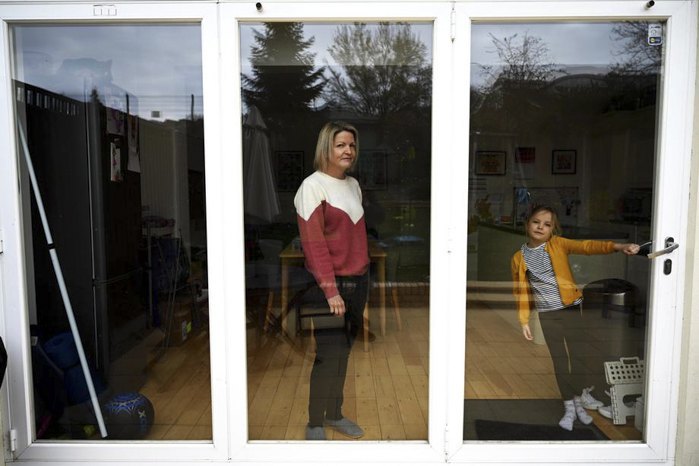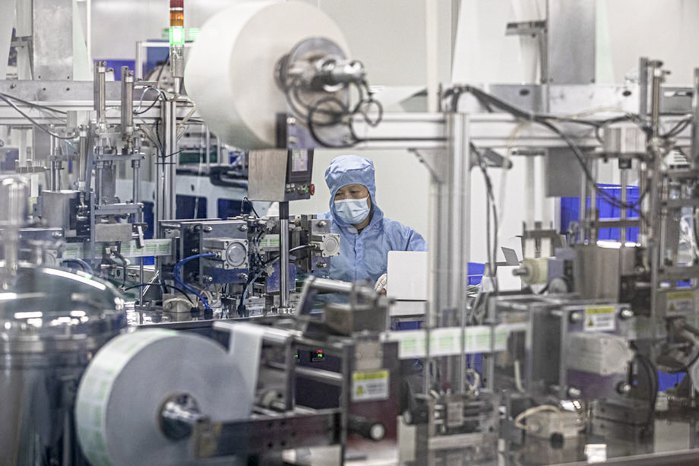Emergency Business Support in pandemic: Where and how does it work?

Decisive actions to support the business, combined with measures to ensure that employees do not face a financial collapse in the event of their dismissal, minimize the “trauma” from the impact of the pandemic on the economy and people. However, these measures are needed already yesterday.
If right now even in Europe, where financial assistance programs for entrepreneurs have already been launched, dozens of branches of manufacturing giants are closing down (Volkswagen is turning off most of the enterprises on the continent, Fiat Chrysler, including the Peugeot PSA Group and Renault, 35 enterprises in the EU), then there remains a big question , why doesn’t it scare, for example, Ukraine?
Each component of aggregate demand/supply, capital spending, export — is in unprecedented free fall. In the best case, there will be, if not a global financial crisis, then a global recession. For most governments, the immediate deployment of capital, payroll and fiscal stimulus programs was almost a priority at the time quarantine was introduced. Those who don’t catch it soon, unfortunately, will have to rely on charity and help in the form of IMF loans, which will still not cover the resulting economic drop.
So, what do we have today based on the practices of strong states:
1. Germany
a. Short-term allowances for SMEs: Valid for small and medium-sized businesses if it affects at least 10% of the workforce.
b. Emergency Financial assistance to business: Companies with up to 5 employees (equivalent to full-time) can apply for a lump sum payment of up to 9 thousand euros for 3 months. Enterprises with up to 9 employees (equivalent to full employment) can apply for a one-time payment of up to 15 thousand euros for 3 months
c. KFW Loans: Companies operating on the market for at least 3 years and having full financial reporting on their activities can apply for a loan for investments and working capital. For small and medium enterprises, the risk up to 90% is accepted.
d. Tax incentives for SMEs: Allow companies to defer tax obligations from income, corporate and sales taxes until the end of 2020. Tax prepayments can also be adjusted.
2. Great Britain
a. Payroll compensation: As part of the “Workplace Conservation Scheme” in a pandemic, the government pays up to 80% (a total of up to £ 2.5 thousand) of wages per month to workers in various fields of activity, providing them with the right to save their jobs and thereby alleviate the burden on business.
b. Deferral of VAT and income tax payments: VAT payments due from March to the end of June are delayed for 3 months. Income tax payments will be deferred until January 2021.
c. Loans for business interruption: The state provides companies with 12-month interest-free loans worth up to £ 5 million for the possibility of temporarily interrupting their activities without ceasing to exist
d. Healthcare benefits: Small businesses have the right to receive a two-week sick leave compensation for their employee if the illness is caused by COVID-19.
e. Grants for Retailers: Small retailers and the hotel businesses are provided with cash grants in the amount of up to 25 thousand pounds, enterprises with an estimated value of less than 15 thousand pounds - in the amount of 10 thousand pounds, and for enterprises with an estimated value between 15 and 51 thousand pounds - in the amount of 25 thousand pounds.
f. Grants for small business: The state provides a one-time grant of £10’000 to each small business to help cover the ongoing expenses

3. France
a. Deferral of tax debts: Small businesses can defer the payment of tax and social debts simply by sending an appropriate application email to their company's tax department (SIE).
b. Suspension of payments of utility bills and taxes: Small and medium-sized enterprises, especially those affected by COVID-19, can delay the payment of bills for water, gas, electricity and rent, and also suspend the payment of taxes and social contributions for the period of quarantine.
c. Financial Solidarity Fund: The state provides financial assistance in the amount of 1.5 thousand euros to all business owners whose annual turnover is less than 1 million euros, and, first of all, helps those who were forced to completely curtail their activities for the quarantine period or lost more than 70% of the profit in March 2020 compared to March 2019.
d. Payroll compensation: The state guarantees employees the right to compensation equal to 70% of the total salary (about 84% of the net). Minimum wage workers receive 100% compensation. Moreover, companies are fully compensated for the costs of such payments - up to 7 thousand euros per month.
4. Italy:
a. Benefits for the individual entrepreneurs: For self-employed workers, the state provides for the payment of a monthly allowance of 600 euros for 3 months (within the municipalities affected by COVID-19).
b. Reserve Financial Fund: Companies with less than 5 employees and who were forced to completely suspend their activities are entitled to receive 50% compensation for wages paid to their employees for a maximum quarantine period (9 weeks).
c. Rental compensation: All stores receive the compensation for the rent of March 2020 equal to the 60% of the amount of rent.
5. Spain:
a. Tax Holidays for businesses: Small and medium-sized enterprises have the right to postpone the payment of tax debts or arrange interest-free express installments for 6 months.
b. Paid leave and compensation for expenses of the employed population: All employees who do not belong in the area or essential services continue to receive the basic salary , and also have a right to the expense compensation related to the COVID 19.
6. Netherlands:
a. Business Loans: The government offers the opportunity to obtain a loan or overdraft through a bank account for small and medium-sized enterprises that were left without income due to suspended production due to COVID-19.
b. Reduced working hours for employees: For enterprises with large number of employees, the state guarantees the possibility of reducing working time on the condition of processing paid unemployment benefits.
c. Deferred tax payments: For small and medium-sized enterprises, a 3-month tax deferral has been introduced (income and corporate taxes, VAT and social charges). Entrepreneurs can also ask for a reduction in corporate tax.
d. Financial compensation for self-employed and SMEs: Small and medium-sized enterprises, as well as self-employed, who were forced to interrupt their activities because of COVID-19, receive compensation in the amount of from 1.5 thousand to 3.5 thousand euros per month for 3 months.
7. Sweden:
a. Subsidies for short-term leave: The state compensates employers for up to 90% of the wages of workers who were forced to take short-term leave due to COVID-19.
b. Financial assistance in paying sick leave to support enterprises: The government temporarily incurs all costs related to the employee sick leave in April-May. Self-employed are also eligible for sickness benefits from 1 to 14 days.

8. Denmark:
a. Compensation for the loss on failed events: The state compensates the damage to all companies for failed events and events from March 6 to March 31, 2020 in connection with COVID-19.
b. Temporary compensation of employees to support business: In order to assist commercial enterprises for permanent employees, wage compensation is provided - in the amount of 75% of the total cost of wages (but not more than 23 thousand Danish kroner) per month for one full-time employee. For employees working at enterprises hourly, wage compensation is from 90% (up to 26 thousand Danish kroner) monthly.
9. Switzerland:
a. Express loans to SMEs: Due to many enterprises suffering losses due to COVID-19, the state provides SMEs with quick loans from 500 thousand Swiss francs. The so-called "interim loans" ("COVID-19 loans") provide companies with the most non-bureaucratic targeted support - business representatives only need to fill out an online application by July 31, 2020.
10. USA:
a. Economic Injury Disaster Loans (EIDL): The US Small Business Administration (SBA) provides small businesses and non-profit organizations working capital loans under the EIDL program in the amount of up to $ 2 million.
b. Entrepreneurship Development Program: SBA provides grants and funding for training, counseling and assistance to small businesses affected by COVID-19, in the amount of 10 to 240 million dollars
c. Payroll conservation program: SBA provides small businesses with a direct incentive to keep their employees on the salary set before the crisis and provides a loan to small businesses up to $ 10 million directed to cover wages and part of the expenses.
d. Pilot program Express Bridge Loan: Allows small businesses that currently have business relations with SBA to receive up to 25 thousand dollars.
e. Mitigating debt conditions for business survival: SBA has developed a crisis lending system (7 options) that allows companies to pay the principal and interest on loans issued before September 27, 2020, on more favorable terms.
11. Canada:
a. Payroll Subsidies to support the business: The state provides a 75% subsidy for the salaries of employees working in enterprises who experience income decrease by 30% or more in connection with COVID-19 for a period of up to 3 months.
b. Emergency benefits for interrupted employees: The state provides a tax allowance of $ 2 thousand monthly for up to 4 months for: employees who had to interrupt their work due to COVID-19; not having access to paid leave; patients with COVID-19; caring for sick members of the family; self-employed and hired workers.
c. Interest-free loans for small businesses: The state provides up to 40 thousand dollars in the form of interest-free loans to small enterprises to maintain their viability during the quarantine period. Also loans up to 2 million dollars at low interest rates is provided for those whose business has consistently registered income for at least 24 months, regardless of industry.
d. Postponement of deadlines for filing tax returns: Businesses can defer payment of any amount of income tax until September 2020 or even later. In addition, the state deferred GST, HST and customs duties until June 30, 2020.
e. Financing purchase orders: The state covers up to 90% of the amount of purchase orders in order to facilitate the flow of cash to suppliers.
12. Japan:
a. Financial Support for Business: The state provides a 100% guarantee on loans if the annual sales of the company decreased by more than 20%, and an 80% guarantee if the annual sales decreased by 5%.
b. Subsidies for productivity. Companies developing IT tools leading to the development of an innovative environment and improvements in all sectors of the economy and in society are eligible for subsidies ranging from 300 thousand to 4.5 million yen.
13. Singapore:
a. Job support for the survival of enterprises: The state provides companies with a “discount” of 8% of the average wage per employee in the limit of up to 3.6 thousand dollars. until July 2020 inclusive.
b. Payroll Credits: In order to support business and preserve the production capacities of Singaporean companies, the state initiates payroll credit for the employees up to 5 thousand dollars.
c. Income tax exemptions from enterprises. The state provides a 25% discount as part of the income tax exemption from companies with a limit of 15 thousand dollars per enterprise.
d. Fortune tax benefits. The state provides a 25% discount on property tax for all commercial properties.

14. South Korea:
a. VAT benefits: The state provides VAT benefits for companies earning less than $ 60 million per year.
b. Financial support for SMEs: The state provides financial support to small and medium enterprises, increasing subsidies from 1.2 trillion up to 4.6 trillion won for small businesses, and from 0.03 trillion won up to 0.63 trillion out for the medium businesses.
c. Simplification of rental obligations: The state provides all lessors with a 50% discount on income tax.
15. China:
a. Tax incentives: The state provides for: 2 exemption from personal income tax on income related to the prevention of COVID-19; 5 exceptions for three taxes (value added tax, corporate income tax, customs duties) on entrepreneurial activities related to the supply of preventive materials for COVID-19; 4 exemptions from 6 taxes and 2 fees for social security contributions related to COVID-19; extension of the period of transfer of corporate losses for enterprises that incurred losses in connection with COVID-19.
b. Financial support: The state previewed 30 policies issued by the People's Bank of China, the Ministry of Finance, the Banking and Insurance Regulatory Commission, the Securities Regulatory Commission and the Foreign Exchange Bureau (official site).
16. Australia:
a. Assistance in maintaining cash flow: The state provides up to 100 thousand dollars for small and medium-sized enterprises with the first minimum payment of 20 thousand.
b. Tax deduction: The state increased the threshold for instant write-off of assets from 30 thousand dollars up to 150 thousand for businesses with net annual sales of less than $ 500 million until June 30, 2020.
c. Support for interns to save future staff: Employers can apply for subsidized wages in the amount of 50% of the trainee’s wages for up to 9 months until September 30, 2020 (maximum up to 21 thousand dollars for each trainee).
d. JobKeeper platform: During the crisis, enterprises may require a two-week payment of $ 1.5 thousand for each employee who meets the criteria established for this, from March 30, 2020 and for a maximum period of 6 months.
It is important to note that in order to launch such supporting programs to support business and the public (which, in fact, are not an impossible task if there is an appropriate strategic plan of action), high-quality institutions are needed both inside and outside the government and political system. A strong state is more than a political force. It does not just declare “responsibility” and feeds accountable institutions, it effectively and by all available means strives to ensure that its market participants remain efficient in any conditions.








